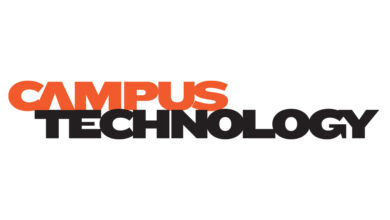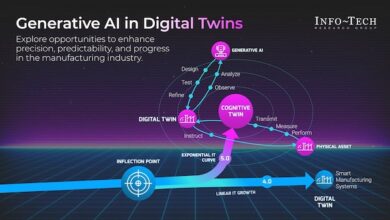IPG CEO Philippe Krakowsky on AI in advertising: beware ‘reversion to the mean’

The longtime ad industry leader and AI veteran says that AI could empower creativity – or cause it to stagnate. The crucial factor? Human intention.
AI’s recent and rapid ascent into into mainstream consciousness – largely a result of the proliferation of generative AI tools like ChatGPT – can make it easy to forget that the technology has a long history.
The French philosopher and mathematician René Descartes theorized the invention of thinking machines – a precursor to what we’d now call AI – back in the 17th century. As an actual field of study, the origins of AI are usually traced to a 1956 conference at Dartmouth College, organized by pioneers of the field including Marvin Minsky and John McCarthy.
The point is, while AI might feel like an ’emerging’ technology, in reality it began to hatch out of its shell a long time ago.
Interpublic Group (IPG) CEO Philippe Krakowsky had his finger directly on the pulse of AI decades before the world had ever heard of ChatGPT. After studying comparative literature and linguistics at Harvard, he helped to launch an AI company that was eventually acquired by Apple in the late 1980s.
Krakowsky arrived at IPG in 2002, after stints at Y&R (now VML) and BBDO. Nearly two decades later, in 2021, he was appointed CEO. All the while, he’s maintained a fascination with AI.
In an exclusive interview with The Drum in Manhattan on Tuesday, Krakowsky emphasized his commitment to incorporating AI in the fabric of IPG, whose agencies count Amazon, Frito-Lay, Nike, Johnson & Johnson and Spotify among its clientele.
”We want the technology embedded in our ways of working – we don’t want it sitting off to the side or siloed,” he said. ”We want it used as broadly as possible across the organization.”
The holding company has spent at least $100m on proprietary AI tech, and in February established a partnership with Adobe that will integrate the tech company’s AI tools for content ideation and production directly into IPG’s martech stack.
He also underscored his belief that the ad industry tends to pay too much attention to the cost-cutting and productivity-boosting elements of AI. In his view, agencies would be better off focusing on automating rote, time-consuming tasks, so that individual workers can “move upstream to work on higher-order, higher-value work [for] clients.“
Nonetheless, IPG remains cautious in its applications of AI. The company is “pretty resolved,“ in its decision to avoid using AI to produce representations of humans, Krakowsky said at an event in Manhattan Tuesday.
This point in particular has become a topic of heated debate in in tech and marketing, in part due to widely publicized incidents earlier this year in which Google’s Gemini misrepresented historical facts and depicted famous – and infamous – white historical figures as peopel of color. In response, Google paused the model’s ability to generate images of people. Beauty brand Dove has also made a commitment not to use generative AI to represent women in its advertising.
In lieu of the risks associated with producing human likeness via AI, the key challenge of AI-driven marketing, in Krakowsky’s view, is what he has described as a “reversion to the mean.” What he means by this is the possibility that the widespread use of the same small cohort of generative AI models throughout the industry could lead us into an era of creative stagnation, mediocrity and boring uniformity.
Suggested newsletters for you
So how can such an outcome be avoided? The key, Krakowsky tells The Drum, is “co-intelligence” – a term he borrowed from a book of the same name by University of Pennsylvania professor Ethan Wollick, which attempts to lay out a pragmatic approach to the use of AI in daily life.
Krakowsky argues that AI will not be enough in and of itself to produce great creative work; it must be used in concert with human beings who have a clear set of objectives – towards which progress can be measured with precise metrics.
And ultimately, he believes that agency leaders like those at IPG will play a key role. “The unlock is going to be getting folks on the agency side … who have really good judgment, and who are as much craftspeople as they are knowledge workers, and having them interface with the machines,” Krakowsky told The Drum. ”That’s where you get to a place where you don’t revert to the mean.”
For more on the latest happenings in AI, web3 and other cutting-edge technologies, sign up for The Emerging Tech Briefing newsletter.



